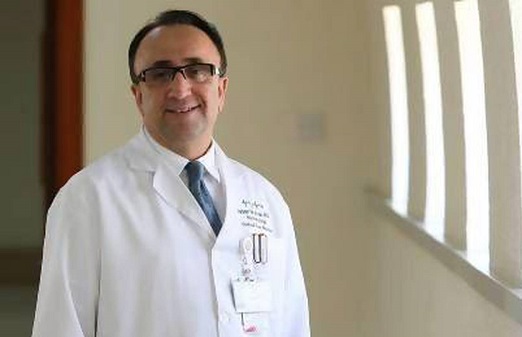
Braden Markus, 15, had what his mother said was an “amazing weekend of football” on Saturday, Oct. 21, 2021. To celebrate, the Ohio teen ordered his favorite food, then “spent the rest of the night doing homework, playing Xbox with his cousins and sleeping,” his mom wrote in a Facebook post.
“Typical life of a teenager,” Jennifer Argiro-Markus, Braden’s mom, added.
Less than 24 hours later, Braden died by suicide. His family believes he was a victim of cyber “sextortion.” Local authorities have opened a criminal investigation into the case.
‘I am only 15, why are you doing this to me?’
At 11:01 a.m. the next morning, after Braden started working on his driver’s education test and more school work, his mom said a “cyber bully friended” him on Instagram, “posing as a high school girl.”
After five minutes of messaging back and forth, Argiro-Markus wrote that the person asked Braden to “message using Google Hangout.” Braden agreed, but the person he was chatting with was not who they claimed to be.
“Things went south within 30 minutes,” his mom wrote on Facebook.
The online predator sent her son pictures, continuing to claim to be the girl in the photographs. The person then spent the next five minutes “hounding” Braden to send a picture, who his mom wrote repeatedly said no, citing his age.
“The hacker kept the pressure up,” Braden’s mom wrote. “If B got off the account, the hacker would hound him on his Instagram messenger. Eventually, B caved and sent a picture. The Monster knew exactly what to say and what to post to get into a 15-year-old’s brain.”
Once the hacker had a picture of Braden, Argiro-Markus said her son was threatened and told to pay the predator $1,800 or “else the monster” was going to release it among other pictures the hacker took from Braden’s Instagram account.
“The messages go on and on for 27 minutes,” she wrote. “The last five minutes of B’s life, he said over and over again, ‘I am only 15, why are you doing this to me? I am only 15, you will ruin my life.’ It is a thread that in a way I wish I never read, but here we are.” (In her post, Argiro-Markus explained she had to wait 10 months to get a court order to have Apple unlock her son’s phone so she could see what happened.)
At 11:28 a.m., Braden died by suicide.
“He was the kid that was literally loved by everyone, family, friends, teachers you name it,” Argiro-Markus told TODAY Parents. “His smile lit up a room wherever he went. He enjoyed sports, Xbox with his cousins and pranks with his buddies.”
Now, Argiro-Markus is warning parents of the dangers of online sexploitation and honoring her son’s memory with the Braden Markus Memorial Scholarship Fund.
“Make sure you talk to your kids about online cyber crimes. Make sure you tell them over and over that when they make a mistake to come to you, nothing is worth their lives,” the mom wrote on Facebook. “We can’t help our kids if we don’t speak up, and warn them, and try to stop these predators, and you can’t warn them unless you know about it.”
What is online or cyber sextortion?
“Sextortion is a term that is being used in recent years to describe a type of extortion in which a predator will use a sexually explicit image or video of another person in order to either engage with them in a sexual or exploitive relationship online or offline, or to exploit money from their victims,” Donna Hughes, president and CEO of Enough is Enough, a non-profit organization dedicated to preventing the internet-enabled exploitation of children, told TODAY.









